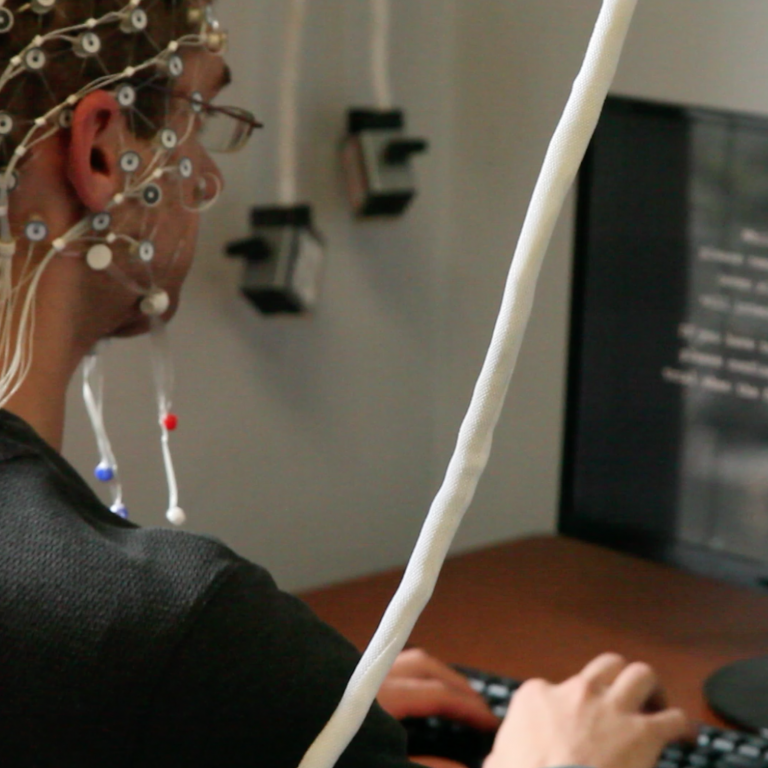by Debbie Levitt, CMS Wire
Those of us working in the customer experience or user experience field have heard the term “empathy” bandied about with increasing frequency over the last few years. As a growing buzzword, it's important to think critically about what we've been hearing. How do we define empathy? Can we create or raise our empathy?
To try to answer those questions I interviewed Dr. Seth Finkle who has a B.A. in psychology and music from Tufts University, and a Psy.D. in clinical psychology from Widener University, for my new book, Delta CX. Finkle has been a practicing psychologist since 1998 and is also an adjunct faculty member at Moravian College and West Chester University in Pennsylvania. Since 2008, he has been a school psychologist in the Allentown School District. Here is an excerpt from that interview.
How Do You Define Empathy?
Levitt: In my industry, "empathy" has become a buzzword. People are being told, “Step one, empathize or create empathy” mostly by creating a map of the customer’s step by step process. If you understood their process, you empathized. What is your definition of empathy?
Finkle: Empathy, for the most part, is the ability to understand someone else's experience and to experience their feelings — to some extent — firsthand. To empathize rather than to sympathize is to take on part of someone else’s experience and to resonate with it in some way.
It's not just an intellectual understanding like, “I see this person having an experience.” That can make you sympathetic to the experience, and you can respond to it in some way. What you're describing for your industry sounds more like what I would think of as sympathy or perspective-taking. It sounds like a much more intellectualized process. Typically, empathy is a more emotional process having to do with feeling something in response to what someone else is feeling. It affects the observer as a person- it creates an emotional resonance that they can feel.
Using language like, “I've mapped it out,” it has a very intellectualized feeling to it. Would you really know what it's like to be in the shoes of the consumer? Without that, I could theoretically sit and conceptualize what someone's experience might be, I suppose, without actually consulting with them. I would call that guesswork. Empathy and compassion require a greater level of engagement.
Sympathy is seeing someone in pain and saying, “Ooh, that's gotta hurt.” Empathy is more like, “I can feel your hurt, too. Your pain is resonating with me.” Your experience is different than theirs, but there's an attempt to bridge that gap between people, psychologically or emotionally, and it results in a real, genuine emotional response.
Compassion might be, “Let me have this person explain to me what they're experiencing. Let me really try to understand what they're experiencing through their eyes and, to some extent, something like their feelings. And then let me see what I can do to bring to bear some additional perspective and maybe some solutions because I'm not actually experiencing what they're experiencing.” I have the luxury of being out here, but I have a vested interest in reducing their pain or discomfort or frustration, and I have some real insight into their experience and what they might perceive as helpful.
In order to be empathic or compassionate, we can't just stop there and pat ourselves on the back for being sympathetic and say, “We’re done now. We know what it's like to be this person and we know exactly what they need.” You probably don't. And, frankly, it will likely come off less like genuine care and more like presumption or even arrogance.
'Speed Is an Empathy Killer'
Levitt: We’re designing products, services, and experiences, but businesses are increasingly saying, “Go faster, go faster.” Speed over quality. People in my industry say to each other, “We have to find ways to get people to empathize.”
Finkle: If everyone empathized, in the true meaning of the word, that would be really helpful. But again, it sounds like when we're using the word “empathy,” we're talking about two different things. It's important to empathize with someone else's experience. But I don't think that's sufficient for me to be able to make real changes in their experience. Even as a psychotherapist, my ability to empathize is exceedingly important. But it's not sufficient. I also need to have some kind of plan or skill set that allows me to take that problem for that specific situation and transform it into something more useful.
Speed is an empathy killer. I don't know of a way to fast track empathy. It’s a slow and laborious process that requires a fair amount of energy on the part of the beholder to do properly.
As a consumer, rather than as a psychologist, I have myself and I have seen others have an instantaneous rejection of working with a company based on bad UX. I didn't know what UX was at the time, but I knew if my experience is this limited and this bad to begin with, it's not going to get any better. As a consumer, I have an inherent distrust of a company's ability to improve itself.
So they'll roll out bad products thinking they'll fix it in the next version. I don't know if there's ever going to be a next version. I don't know if that bug fix is ever going to happen. I don't know if it's ever going to be more usable. The companies that I stick with are the ones where I can put in a feature request and it's addressed not just by someone who says, “We'll think about that. Thanks for the feature request,” but they implement it, sometimes in the next version. That's a company that will have my business for the rest of my life.
Can Empathy Be Taught?
Thanks to Seth for a great discussion about empathy and whether or not we can change others or “create more empathy” around our workplaces. For the most part, we can’t. We would suggest that where co-workers lack empathy for their customers, they can still present the Voice of the Customer through videos, quotes and other research data. But they must have enough empathy to know who is low empathy and/or more likely to be swayed by or interested in hard numbers like increased internal efficiency, increased revenue, and business and marketing goals met or exceeded.
About the Author: Debbie Levitt, CEO of Ptype UX & Product Design Agency, has been a UX strategist, designer, and trainer since the 1990s. As a “serial contractor” who lived in the Bay Area for most of this decade, Debbie has influenced interfaces at Sony, Wells Fargo, Constant Contact, Macys.com, Oracle, and a variety of Silicon Valley startups.
Photo by VONECIA CARSWELL





